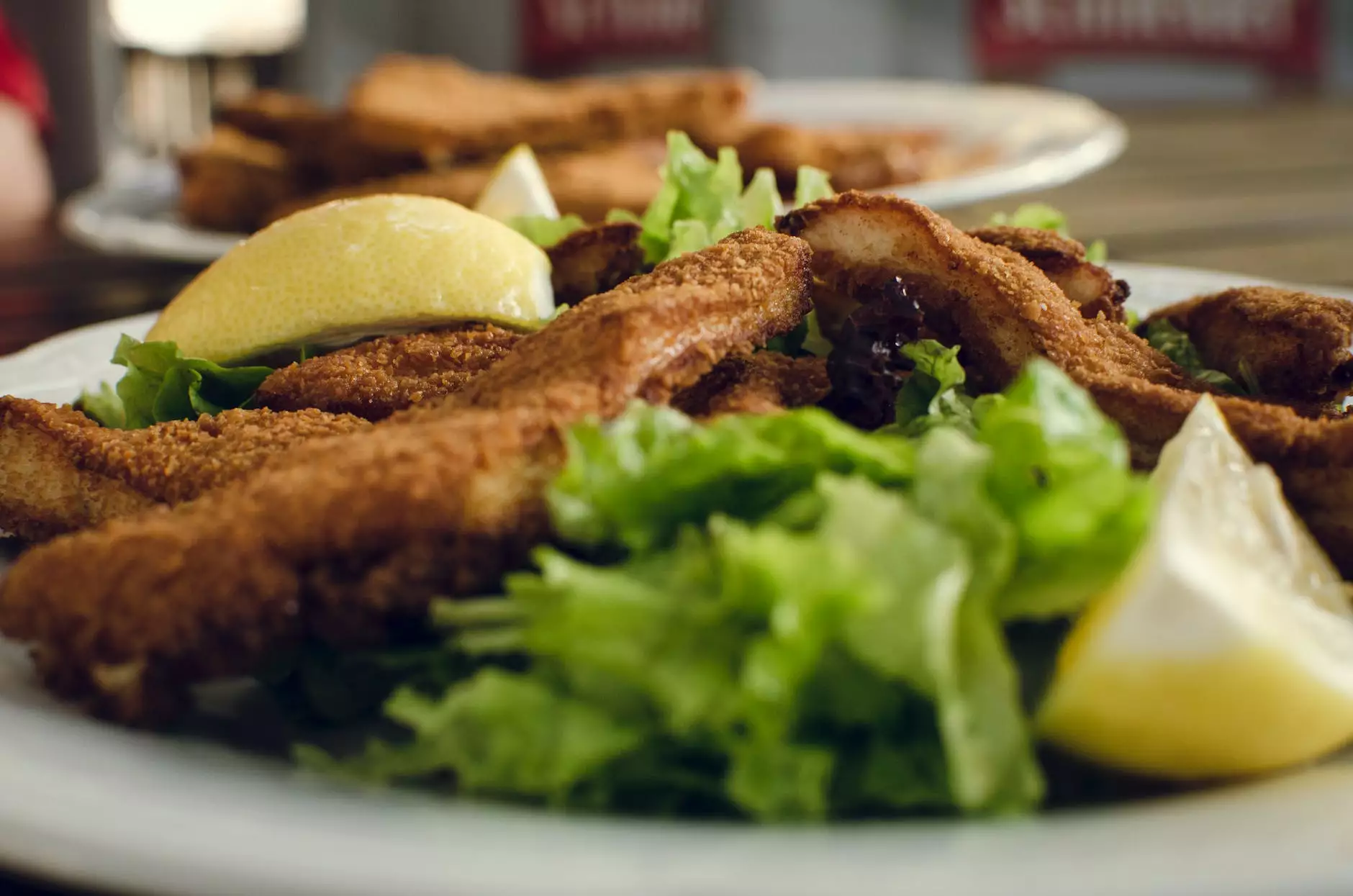The Growing Market for Frozen Chicken: Insights and Opportunities

In today’s fast-paced world, frozen chicken has emerged as a staple in many households and restaurants worldwide. With its convenience, affordability, and versatility, the demand for frozen chicken continues to soar. This article delves into the booming market for frozen chicken, highlighting Brazilian poultry exporters and bulk chicken supply, while providing insights into trends, benefits, and best practices for sourcing.
The Importance of Frozen Chicken in Modern Cuisine
Frozen chicken serves as a vital ingredient in the culinary landscape. It offers numerous advantages that appeal to both consumers and businesses alike:
- Convenience: Frozen chicken is ready to cook, making meal preparation quick and easy without sacrificing quality.
- Long Shelf Life: The freezing process extends the shelf life of chicken, reducing food waste.
- Affordable Pricing: Bulk purchasing of frozen chicken often leads to cost savings, especially for restaurants and food service providers.
- Nutritional Value: When frozen at peak freshness, chicken retains its essential nutrients and flavors, offering a healthy protein source.
Brazilian Poultry Exporters: A Key Player in the Frozen Chicken Market
Brazil stands as one of the largest poultry exporters in the world, with a vast network of frozen chicken supply to various international markets. The country's favorable climate, superior farming techniques, and established infrastructure contribute to its robust poultry industry.
1. Quality of Brazilian Frozen Chicken
Brazilian poultry exporters adhere to strict health and safety standards, ensuring that their frozen chicken products are free from contaminants and meet global regulations. The country is known for:
- Health Certifications: Exported chicken must pass rigorous health inspections, ensuring safety for consumers.
- Sustainable Farming Practices: Many Brazilian exporters emphasize eco-friendly practices, supporting animal welfare and environmental sustainability.
- Traceability: Leading exporters provide transparency in their supply chain, allowing buyers to trace the origin of their products.
2. Competitive Pricing
Brazil’s vast agricultural resources allow it to produce frozen chicken at competitive prices. The economies of scale achieved by large Brazilian poultry farms enable exporters to offer attractive pricing to international buyers. This affordability makes Brazilian frozen chicken particularly appealing for bulk purchases by restaurants and food suppliers across the globe.
3. Diverse Product Range
Brazilian exporters offer a wide variety of frozen chicken products, catering to different culinary needs and preferences. Some of the options include:
- Whole Frozen Chickens: Suitable for roasting and various cooking methods.
- Chicken Parts: Legs, breasts, wings, and thighs, available in bulk for restaurants.
- Value-Added Products: Pre-marinated or seasoned frozen chicken, ready for cooking.
Market Trends Shaping the Future of Frozen Chicken
The demand for frozen chicken is being shaped by several emerging trends over recent years:
1. Increased Health Consciousness
As consumers become more health-conscious, the demand for lean protein like chicken has surged. Frozen chicken products that are lower in fat and free from additives are particularly sought after. Health claims such as “organic” and “free-range” are becoming increasingly important, leading businesses to adapt their offerings accordingly.
2. Convenience Foods and Meal Kits
The rise of meal kit subscriptions and ready-to-cook meals has further accelerated the demand for frozen chicken. Consumers are looking for hassle-free, nutritious meal options that fit within their busy lifestyles. Suppliers that can provide high-quality frozen chicken suited for meal kits are well-positioned in this growing market segment.
3. E-commerce Growth
With the growing influence of digital shopping, many consumers are turning to online platforms to purchase their frozen chicken. The rise of e-commerce not only allows for greater accessibility but also enables consumers to compare prices and quality from various suppliers. It's essential for businesses to establish a strong online presence to cater to this demand.
How to Choose the Right Supplier for Frozen Chicken
Selecting a reliable supplier for frozen chicken is crucial for the success of any food-related business. Here are key factors to consider:
1. Quality Assurance
Ensure that the supplier adheres to strict quality control measures. This includes certifications from relevant health authorities, regular quality checks, and positive feedback from previous customers. High-quality products will ensure customer satisfaction and repeat business.
2. Supply Chain Transparency
Choose suppliers who provide detailed information about their supply chain. You should know the origin of the chicken, farming practices, and processing methods, ensuring the products meet your standards.
3. Flexibility and Reliability
A good supplier should be able to accommodate changes in order size and frequency. Reliability in delivery schedules is crucial to maintaining consistent operations in your business.
The Benefits of Bulk Purchasing Frozen Chicken
Purchasing frozen chicken in bulk can provide several advantages for businesses:
- Cost Savings: Buying in larger quantities often results in discounted prices, significantly reducing overall food costs.
- Reduction in Stock Shortages: Maintaining a large stock of frozen chicken helps avoid unexpected shortages that could disrupt operations.
- Consistent Inventory: Having a bulk supply ensures that you can offer a consistent menu to your customers without fluctuations in availability.
Conclusion
The frozen chicken market is poised for continued growth, driven by convenience, health trends, and the quality offerings of suppliers, particularly Brazilian poultry exporters. By understanding the dynamics of this market and how to choose the right suppliers, businesses can capitalize on the numerous opportunities presented in this sector.
Investing in frozen chicken not only meets consumer demands for convenience and affordability but also enhances restaurant menus and food service offerings. As the love for chicken continues to evolve, so too should the strategies of those in the industry.
For businesses looking to thrive in the frozen chicken market, establishing a strong relationship with reliable suppliers, comprehending market trends, and being adaptable to consumer needs will be the keys to success.









